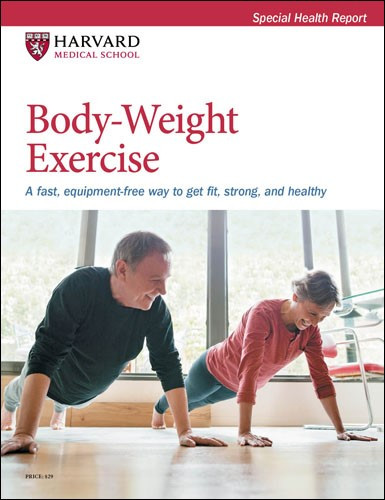Everyday activities count as exercise, but intensity matters
In the journals
- Reviewed by Howard E. LeWine, MD, Chief Medical Editor, Harvard Health Publishing; Editorial Advisory Board Member, Harvard Health Publishing

Can doing short bursts of everyday activities offer health benefits?
Researchers used wrist activity trackers to measure daily activities of more than 25,000 people ages 42 to 78 who did not exercise formally. Activities were defined as any continuous movement done at a faster-than-normal pace: for example, taking stairs, mopping the floor, gardening, and playing energetically with children. Everyone's movements were tracked for one week, and the results were compared with their health status eight years later.
The researchers found that people who did multiple bouts of daily activities lasting from one to 10 minutes — for a total of about 28 minutes per day — had a lower risk for heart attacks and strokes compared with those who were active for less than a minute at a time. (There was no statistical advantage for being active longer than 10 minutes.)
Intensity was key, as the more vigorous the activity, the greater the benefit. However, the results suggested you don't need to maintain a high intensity all the time. The researchers found that doing at least 15% (about 10 seconds for every minute) at a vigorous level and the rest at a moderate level was enough.
The results were published in the October 2023 issue of The Lancet Public Health.
Image: © milan2099/Getty Images
About the Author

Matthew Solan, Executive Editor, Harvard Men's Health Watch
About the Reviewer

Howard E. LeWine, MD, Chief Medical Editor, Harvard Health Publishing; Editorial Advisory Board Member, Harvard Health Publishing
Disclaimer:
As a service to our readers, Harvard Health Publishing provides access to our library of archived content. Please note the date of last review or update on all articles.
No content on this site, regardless of date, should ever be used as a substitute for direct medical advice from your doctor or other qualified clinician.














